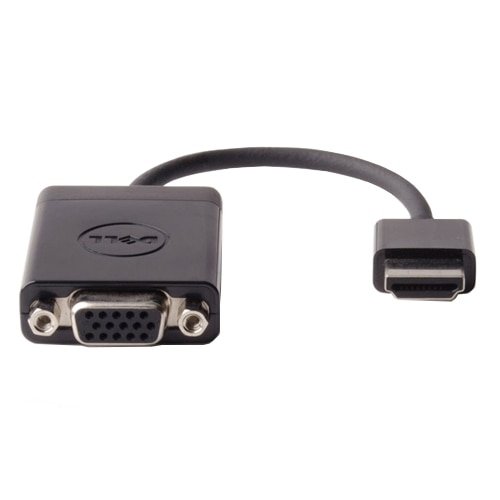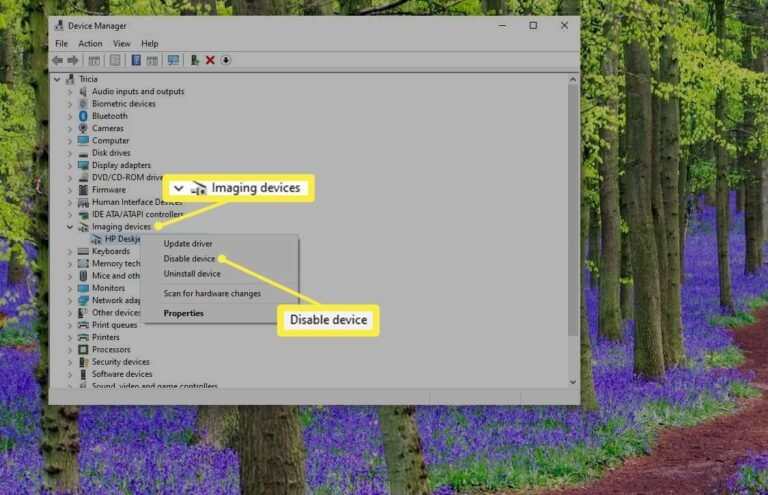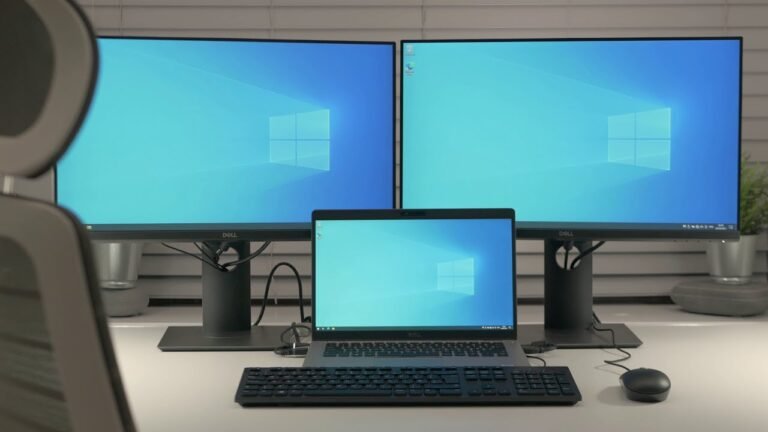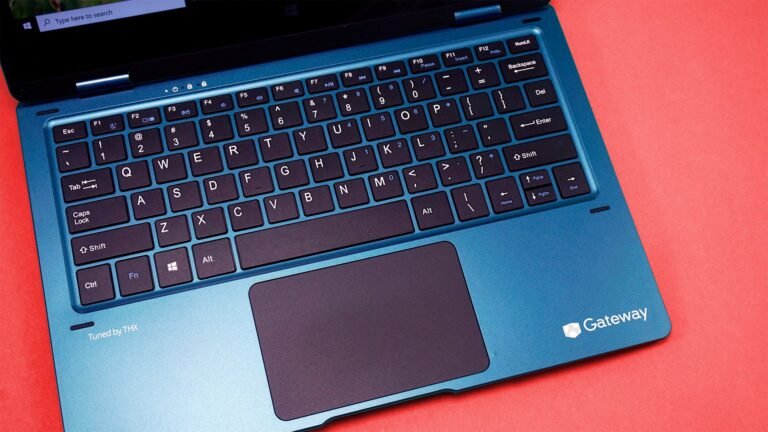Does Using a Monitor With a Laptop Decrease Performance
No, using a monitor with a laptop will not decrease performance. In fact, it can often improve performance because it gives the user additional screen real estate to work with. Additionally, using a monitor with a laptop can help to reduce eye strain and fatigue.
If you’re using a laptop, does having an external monitor decrease performance? The answer is yes and no. It depends on the specs of your machine and what you’re using it for.
Let’s take a closer look.
The main thing to keep in mind is that when you have an external monitor connected to your laptop, it’s effectively using two screens. That means that there’s more information for your computer to process and render.
So, if you’re doing something graphics-intensive or resource-heavy, you may notice a decrease in performance.
However, if you’re just working on some simple documents or browsing the web, chances are you won’t see much of a difference. In fact, some people find that they actually prefer working with an external monitor because it gives them more screen real estate to work with.
At the end of the day, it really comes down to personal preference and what type of work you’ll be doing on your laptop. If performance is a major concern for you, then stick to using just the built-in display. But if you don’t mind sacrificing a bit of speed for extra convenience, then go ahead and connect that external monitor!
Does Using a Monitor With a Laptop Decrease Battery
Laptop batteries are designed to last for a certain number of charge cycles. Using an external monitor connected to your laptop can help reduce the number of charge cycles, and therefore help prolong the life of your battery.
When you use an external monitor with your laptop, the laptop’s built-in display is turned off.
This means that the backlight isn’t used, which uses less power and doesn’t put as much strain on the battery. Additionally, because the image is being displayed on an external monitor, there’s less need for the processor to work as hard, which also helps save battery power.
Of course, there are other factors that can affect battery life, such as screen brightness and whether or not you’re using power-saving mode.
But if you want to give your battery a little boost, using an external monitor is a good way to do it.
Does Using a Monitor With a Laptop Increase Performance
It’s a common misconception that using an external monitor with a laptop will automatically improve your productivity. However, there are a few things to consider before making the switch.
For one, an external monitor generally has a higher resolution than your laptop’s built-in display.
This can be helpful if you’re working with large amounts of data or need to see fine details in graphics or photos. But it’s not always a necessity; if you don’t find yourself straining to read small text on your laptop screen, then an external monitor probably won’t make much of a difference.
Another thing to keep in mind is that most laptops have lower-powered integrated graphics chipsets, while external monitors usually require dedicated graphics cards to work properly.
This means that using an external monitor may put additional strain on your laptop’s battery life. And if you’re running demanding applications or games, you may see even more of a drop in performance due to the extra load on your system.
So, should you use anexternal monitor with your laptop?
It depends on your needs and workflow. If you think anexternal monitor would help increase your productivity, then give it a try and see how it goes. Just keep in mind that it may not be a miracle solution for everyone and that there are some potential downsides to consider before making the switch.
Does a Monitor Connected With a Laptop by Hdmi Affect the Performance of the Laptop
No, a monitor connected with a laptop by HDMI does not affect the performance of the laptop. The only potential issue is if the HDMI cable is not capable of handling the resolution that you are trying to output, in which case you may experience some image quality issues.
Does Using an External Monitor Use Ram
External monitors are an important tool for many computer users. But, you may be wondering, does using an external monitor use up RAM?
The answer is no.
Using an external monitor does not use up RAM. In fact, when you connect an external monitor to your computer, your computer’s internal display is disabled and the video output is sent to the external display. This means that any programs or windows that were open on your internal display will now be displayed on the external monitor.
However, there are a few things to keep in mind if you’re planning on using an external display with your computer. First, make sure that your graphics card supports multiple displays. Otherwise, you may experience issues with image quality or performance.
Second, remember that anything you do on the external display will still be processed by your computer’s CPU and GPU, so if you’re running demanding applications or games, you may see a decrease in performance.
Overall, though, using an external monitor is a great way to increase your productivity or enjoy your favorite media on a larger screen. Just be sure to take into account the factors mentioned above to ensure a smooth and enjoyable experience.
Is It Good to Connect Laptop to Monitor
Sure, you can connect your laptop to a monitor. In fact, it might be a good idea if you want to improve your productivity or get a better viewing experience. But there are some things you should keep in mind before making the connection.
For one, the native resolution of most laptops is lower than that of monitors. So, if you’re looking for sharper image quality, you might be disappointed. Additionally, connecting an external monitor will likely drain your laptop’s battery faster.
Still, there are plenty of reasons to connect your laptop to a monitor. If you often find yourself working on long documents orspreadsheets, an externalmonitor can give you more screen real estate to work with. And if you’re into gaming or watching movies, the larger screen size and higher resolution can enhance your experience.
Just be sure to weigh the pros and cons before making the decision toconnect your laptop to amonitor. And if you do decide to go ahead with it, take a few minutes to adjust the settings so that everything looks just right.
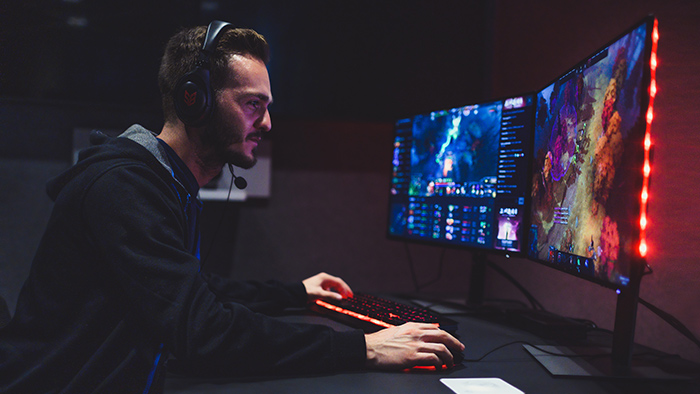
Credit: www.avast.com
Can Using a Monitor With a Laptop Decrease Performance
A laptop’s performance can be decreased by using a monitor because it takes up extra processing power to display what is on the monitor. This is especially true if the resolution of the monitor is higher than that of the laptop’s built-in display. In addition, running two displays can put a strain on the laptop’s battery life.
How Does Using a Monitor With a Laptop Affect Performance
Monitors come in all shapes and sizes, but when it comes to laptops, there are a few things to keep in mind. The most important factor is the resolution. A laptop with a high-resolution screen will look great on a monitor with matching or higher resolution.
Conversely, using a monitor with a lower resolution will make your laptop’s display appear blocky and pixelated. In terms of size, it’s generally best to go with the biggest monitor your budget and desk space allow. Not only will you have more room to work, but everything will appear larger and easier to see.
This can be especially helpful if you’re working with text or graphics that require fine detail.
When it comes to connectivity, most monitors these days use HDMI or DisplayPort. If your laptop only has one of these ports (or even just VGA), you can still use an adapter to connect it to the other type of port on the monitor.
As long as both devices support the same resolution and refresh rate, there shouldn’t be any performance issues. However, if one device is significantly newer than the other, you may not be able to take full advantage of its capabilities due to compatibility issues. For example, using an older laptop with a new 4K monitor may result in lower than expected resolutions and refresh rates because the two devices aren’t fully compatible.
What are the Benefits And Drawbacks of Using a Monitor With a Laptop
When it comes to using a monitor with a laptop, there are both benefits and drawbacks that need to be considered. On the plus side, having an external monitor can give you more screen real estate to work with, which can be helpful when working on large projects or multitasking. It can also be easier on your eyes to look at a larger screen for extended periods of time, as opposed to staring at a small laptop screen.
Additionally, many monitors come with built-in speakers, which can improve the audio experience when compared to using the tiny speakers on most laptops.
On the downside, connecting an external monitor to your laptop means one more cord that you have to lug around with you. It can also be tricky to get the settings just right so that everything looks sharp and crisp on both the laptop and external monitor.
And if you’re working in a dimly lit room, it can actually be harder on your eyes to have two screens glowing brightly instead of just one. Ultimately, whether or not using an external monitor is worth it depends on your specific needs and preferences.
External Monitor Boosts Laptop Gaming Performance!?
Will Forcing My Dell Laptop to Turn Off Cause Any Damage?
Will forcing my Dell laptop to turn off cause any damage? It’s important to exercise caution when resorting to force dell laptop to turn off. While in some cases it may not cause any harm, repeatedly forcing the laptop to shut down abruptly can potentially lead to corrupted files or hardware malfunctions. It’s advisable to try troubleshooting techniques or consult with technical support before resorting to forced shutdowns.
Conclusion
After reading this blog post, it is clear that using a monitor with a laptop can decrease performance. This is due to the fact that the monitor takes up valuable resources that the laptop needs in order to perform at its best. Therefore, it is important to consider this when choosing whether or not to use a monitor with your laptop.





